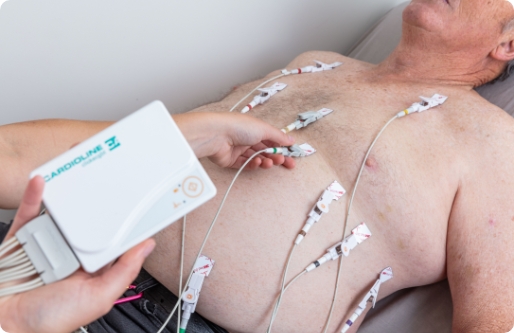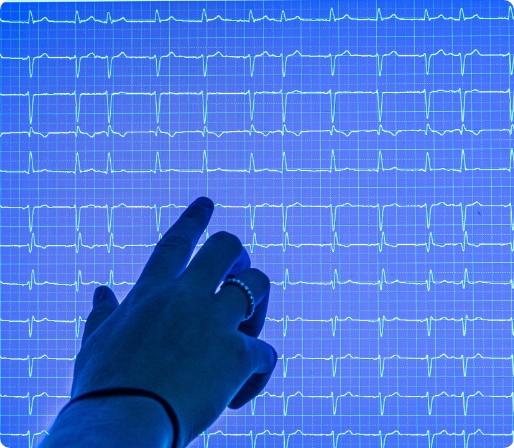Electrocardiography (ECG)
Electrocardiography (ECG)
An electrocardiogram (ECG) is a medical test that detects cardiac (heart) abnormalities by measuring the electrical activity generated by the heart as it contracts. The electrocardiograph records the electrical activity of the heart muscle and displays this data as a trace on a screen or on paper. We then interpret this data and report on any abnormalities detected.
Why do I need an ECG?
An ECG is often conducted on your first visit to our practice to give us an up-to-date rhythm trace. We may also perform an ECG if you are at risk of heart disease because there is a family history of heart disease, are a smoker, are overweight, have diabetes, high cholesterol, or high blood pressure.

We may also recommend an ECG if a you are experiencing symptoms such as:
- Chest pain
- Shortness of breath
- Dizziness
- Fainting, or
- Fast or irregular heartbeats (palpitations)
ECGs are often performed to monitor the health of people who have been diagnosed with heart problems, to help assess artificial cardiac pacemakers or to monitor the effects of certain medications on the heart.
What happens when I have an ECG?
When you have an ECG, you will need to remove your upper clothing so that electrodes can be attached to your chest and limbs. Wearing a separate top with trousers or a skirt can allow easy access to the chest. Underwire in a bra can interfere with the ECG reading – you may be asked to remove it before the test.
An ECG works best when the skin is clean and dry, and free of oils and lotions. The selected sites may be shaved if the hair prevents the electrodes from making proper contact with the skin and affect the quality of the test.
You will be asked to lie down. Electrodes (sensors) are attached to the chest, arms and lower abdomen. These electrodes detect the electrical currents generated by the heart – these are measured and recorded by the electrocardiograph. No movement is allowed during the test, as electrical impulses generated by other muscles may interfere with those generated by your heart. This type of ECG usually takes approximately 5 minutes.

What could an ECG detect?
Some of the various heart problems that can be diagnosed by an ECG include:
- Enlargement of the heart
- Congenital heart defects involving the conducting (electrical) system
- Abnormal rhythm (arrhythmia) – rapid, slow or irregular heart beats
- Damage to the heart such as when one of the heart’s arteries is blocked
- Poor blood supply to the heart
- Abnormal position of the heart
- Heart inflammation – pericarditis or myocarditis
- Cardiac arrest during emergency room or intensive care monitoring
- Disturbances of the heart’s conducting system
- Imbalances in the blood chemicals (electrolytes) that control heart activity
- Previous heart attacks

